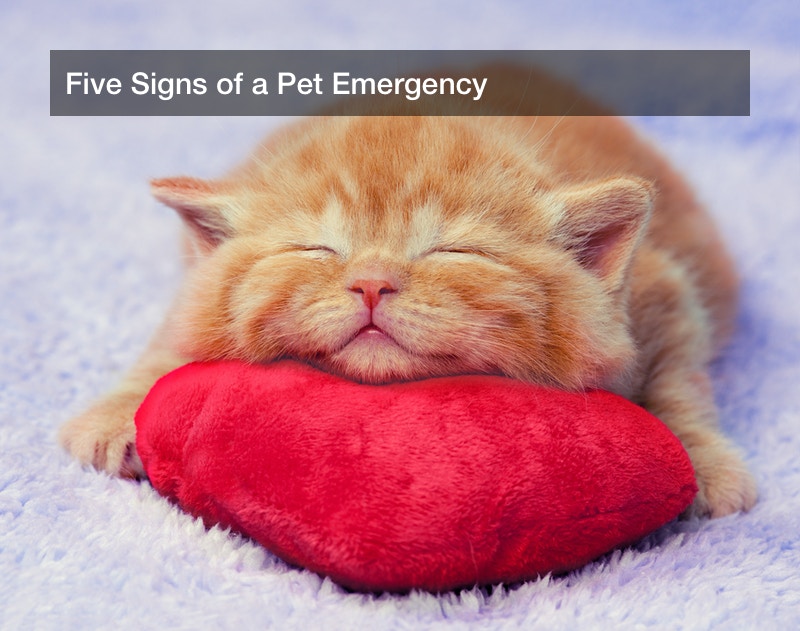
Pet owners love their furry family members, so much so that during the last recession, 92% of them still spent as much or more on pet care, according to Forbes Magazine. Veterinarians are happy to provide proper guidelines for routine care of your cat or dog.
It’s also crucial for pet owners to be able to spot the signs of a pet emergency. Ask your veterinarian what to look for, and be sure that you’re aware of your pet hospital’s emergency policies. Find out whether they offer 24-hour care, or if you should proceed directly to a local emergency animal hospital. Based on the recommendations of the American Society for the Prevention of Cruelty to Animals (ASPCA) and the American Veterinary Medical Association (AVMA), here are five symptoms that call for immediate action.
1. Breathing Difficulties or Choking.
If your pet exhibits rapid or labored breathing, seek help immediately. If your pet is choking, it may be necessary to perform a modified version of the Heimlich maneuver if the object can’t be easily removed. In addition, pet CPR may be needed if your pet is still unconscious after removing the foreign object.
2. Difficulty Walking or Paralysis.
Any observed paralysis, staggering gait, or other difficulties with walking are reasons to contact your veterinarian immediately.
3. Injuries.
Any trauma to your pet that results in severe bleeding, fractures, or any other serious injury requires attention right away. Remember, an injured animal may behave in an aggressive manner due to fear and pain, so approach them slowly in a calm manner. If necessary, ask for assistance.
For cats: place a towel over the cat’s face to avoid being bitten, then gently put them in a carrier with an open top, taking care to support the head and neck area in case there’s any spinal injury.
For larger dogs: Gently lift the dog onto a makeshift stretcher while supporting the dog’s head and neck.
If your pet is bleeding externally, try elevating the wound and applying pressure to it.
4. Severe Vomiting or Diarrhea.
Any more than two episodes within 24 hours is considered to be one of the signs of a pet emergency, so contact your veterinarian immediately.
5. Known or Suspected Ingestion of a Poisonous Substance.
If you think or know that your pet ate something toxic, phone your veterinarian right away or immediately contact the 24-hour hotline for the ASPCA Animal Poison Control Center at (888) 426-4435.
As soon as you can safely transport your pet, bring them to your veterinarian or to an emergency animal hospital right away. Have someone call the clinic for you so that their team is aware that you and your pet are on the way.
When dealing with signs of a pet emergency, you may find it hard to think quickly and rationally. That makes it all the more critical to ensure that your emergency plan is ready before you need it. Your pet child will thank you.
